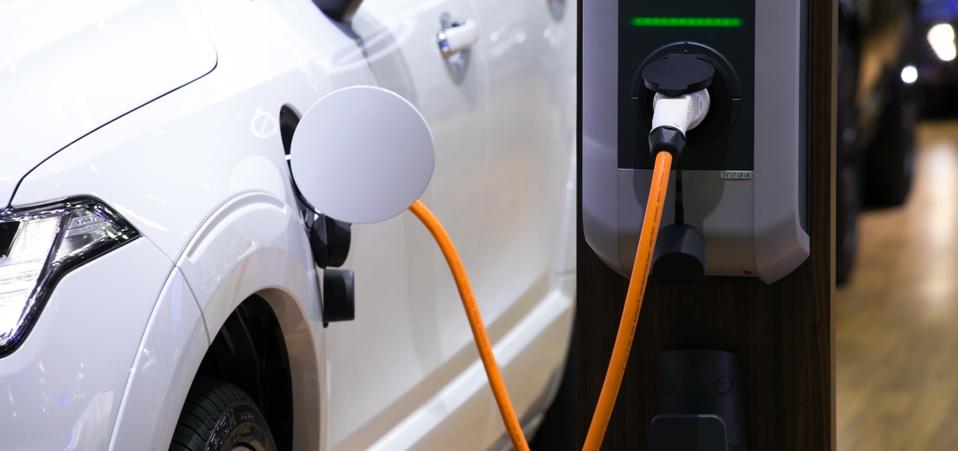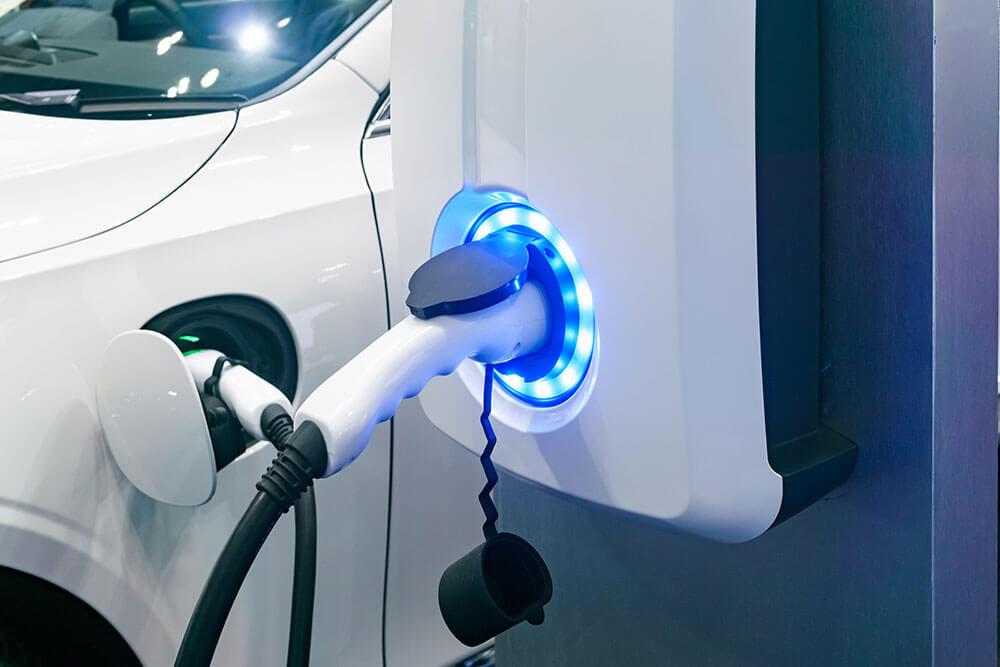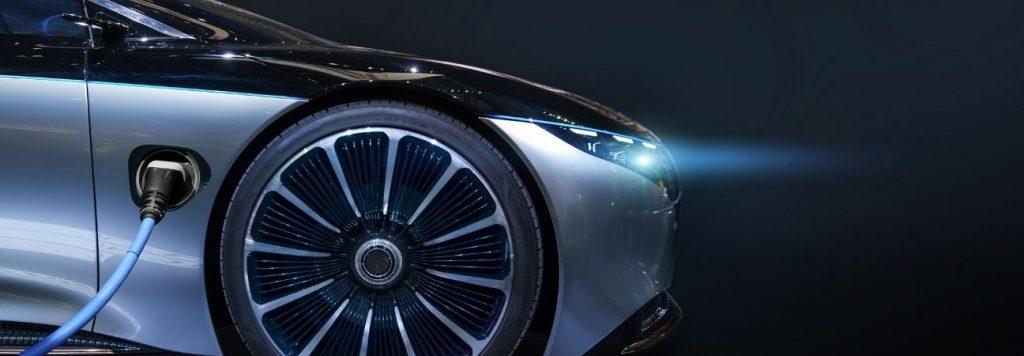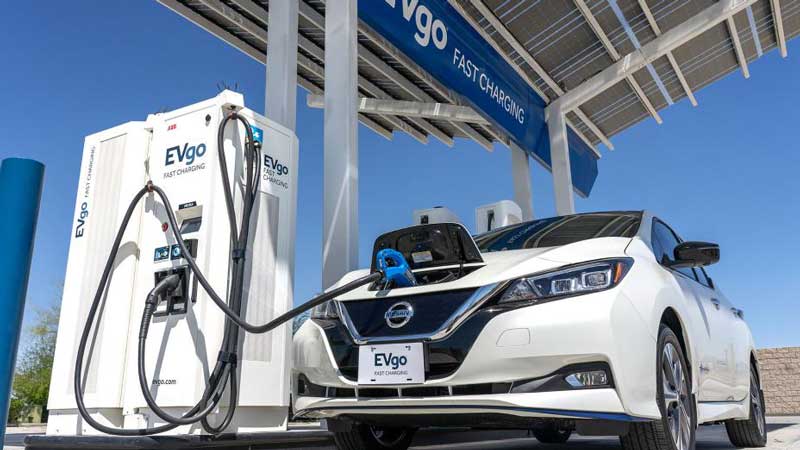Fast charging stations are also quite commonly known as DC charging stations. They offer ultra-fast charging for different electric vehicle batteries and can considerably reduce your charging time & increase the acceleration of the energy transition marginally.
Table of Contents
However, the question remains, "how fast is a fast charging station" unanswered.
Are you searching for the best answer to the following question; well, here's the short one just for you. A fast charging station can take up as much as 15 to 45 minutes to charge a passenger electric vehicle up to 80 per cent in a single go. However, how does it happen or what makes it possible? Let's shed some light on it.
READ: What is the Highest Mileage Tesla Vehicle on the Market?
How Do Vehicles Get Charged When They Are Plugged into a Fast Charging Station?

A fast-charging station usually has a much higher voltage and amperage than the standard Level 2 charging stations. The increased electrical current helps quickly replenish an electric vehicle's battery cells.
The number of minutes required to charge the vehicle's battery to 80% completion using a fast charger will depend on the size of the battery.
For example, a Tesla Model S with a 100 kWh battery will take about 15 minutes to charge using a fast charger, while a Chevy Bolt EV with a 60 kWh battery will take about 45 minutes to reach the same level of charge. As you can see, the charging time for an electric vehicle can vary depending on the size of the battery.
The good news is that fast charging stations are becoming more and more common as the demand for electric vehicles continues to grow. There are now over 12,000 public fast chargers in the United States alone!
How Many Kilowatts (kWh) is a DC Fast Charger?
The power output of a fast charger is typically between 50 kW and 150 kW. However, some fast chargers have even higher power outputs, such as the Tesla Supercharger, which can output up to 250 kW.
The power output of a fast charger is important because it determines how quickly an electric vehicle's battery can be charged. For example, a fast charger with a power output of 50 kW will take much longer to charge an electric vehicle than a fast charger with a power output of 150 kW.
The downside of high power output fast chargers is that they can be quite expensive to build and maintain.
Does DC Charge Work With All Kinds of Vehicles?

DC charging can effectively work with numerous vehicle types. Most electric vehicles charge their batteries directly, connecting them with a fast charging station. However, electric vehicles like the Tesla Model S and Model X can charge their batteries using an inductive charging system.
Inductive charging systems use a magnetic field to transfer energy from the charging station to the vehicle's battery. This system is often used for public chargers because it is more convenient and easier to use than a direct connection.
Ultimately, the type of charger you use will depend on the make and model of the vehicle you're using. It also depends on how much power each electric vehicle's battery can handle. Some batteries have a 350 kW capacity which requires a fairly long period to charge. Whereas some batteries are as less as 50 kW which makes them ideal for most situations.
Only a few vehicles do not offer fast charging capability, including the Fiat 500. A car is commonly not very well known for its fast charging capability.
READ: Do Electric Cars Breakdown?
What Kind of Connector Works Best with DC Fast Charging?
Since most passenger vehicles use DC fast charging, charging the vehicle alone can be a time-taking process. It can easily take a good number of hours when it comes to charging up a vehicle using the AC charging method, but when you have a DC charger coupled with the right connector, the entire process can be cut down to minutes.
The best connector to use with a DC fast charger is the CHAdeMO connector. This connector is the most widely used type for DC fast charging.
The CHAdeMO connector is a Japanese standard brand developed by the CHAdeMO Association. The connector is used to charge electric vehicles quickly and efficiently.
One of the benefits of the CHAdeMO connector is that it can be used with a variety of different electric vehicles. Almost all-electric vehicles on the market today are compatible with the CHAdeMO connector.
What is a Combined Charging System (CCS)?

A combined charging system, or CCS, is a charging system that can be used with both AC and DC fast chargers.
The CCS system was developed by the Society of Automotive Engineers (SAE) and is the most popular type of charging system in Europe.
This particular system uses a special connector that can be used with both AC and DC fast chargers. This makes the CCS system a convenient option for electric vehicle owners who want the flexibility to charge their vehicles using the either charger.
The CCS connector is also compatible with a variety of different electric vehicles. Most electric vehicles on the market today are compatible with the CCS connector.
Is There Something Called the AC Fast Charger?
An AC fast charger is a type of charger that uses alternating current (AC) to charge an electric vehicle. AC fast chargers are not as standard as DC fast chargers. However, they are becoming more popular in recent years.
The AC fast chargers can be used with various electric vehicles as long as they support the fast charging system.
They are quite the popular option among those who frequently travel long distances as they can be used to charge an electric vehicle much faster than a standard AC charger.
READ: Can You Plug An Electric Car Into a Regular Outlet?
Conclusion
So there, you have everything you need to know about fast charging in a charging station. Hope this article was informative. If you want to learn more, head to Road Cartel for information.

